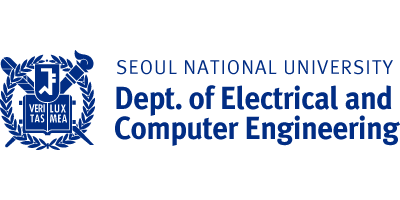Prof. Sungroh Yoon, SNU Bundang Hospital and SNU College of Engineering “Proves the potential of applying AI to analysis of electroencephalographic signals”(ChosunBiz, 20190826)
The team of SNU Bundang Hospital Pediatrics (Neurology) Professors Hee Hwang and Hun-Min Kim and the team of Professor Sungroh Yoon of SNU ECE announced that through collaborative research, they successful developed an algorithm that classifies sleep stages.
Neural oscillations are the only physiological indicator of the central nervous system that can be measured outside of the body. They are used to gauge possibly problematic responses for various illnesses related to the neural system through sleep study and brain wave monitoring. The sleep stage classification results acquired by the algorithm developed through research, when compared to the diagnosis of three experts in neural oscillations, scored a high accuracy of 92%.
It is crucial to differentiate the state of consciousness to understand the results of brain wave monitoring and polysomnography. States of consciousness consists of three categories: awake, REM sleep, and non-REM sleep. Not only is the examination process time consuming, but experts also have to invest extensive time for the challenging job of judging the stages, which requires the simultaneous consideration of various criteria.
The collaborative research team of SNU Bundang Hospital and SNU applied a hybrid algorithm of Convolutional Neural Network (CNN) and Long-Short Term Memory RNN (Recurrent Neural Network), a more advanced approach compared to the conventional brainwave analysis model implemented through machine learning. They were thus able to produce research results with improved accuracy, moving forth in the field of AI brainwave analysis. CNN and RNN are used in image analysis and time series analysis (analysis of data according to the passage of time), respectively.
The SNU Bundang Hospital team analyzed the normal EEG recordings of 218 pediatric subjects. Three neurologists independently classified the sleep stages of approximately 35 thousand brainwave analysis units. Based on this data, researchers in SNU AI Research Center (인공지능연구소) employed various data combinations and processes to develop an algorithm with the best performance in automatically analyzing sleep stages.
According to the research results, the algorithm had an accuracy of 96% and 92% for the awake stage and level 2 non-REM sleep, which are most easily distinguished with the naked eye. Highest accuracy was shown when the brainwave itself and the frequency information were analyzed together. The performance was highest when the unit of analysis was 30 seconds and the entire brainwave was fed.
The research was conducted as part of ‘Dr. Answer’, which is an intelligent medical software development project funded by the Ministry of Science and ICT and organized by National IT Industry Promotion Agency (NIPA). The AI algorithm is to be embedded to a module for classifying sleep stages within an automatic brainwave analysis software that is under work as a research project concerning epilepsy. The team will actively analyze brainwaves on automatic brainwave analysis AI software and improve its performance by feeding datasets.
Professor Hee Hwang, the principle researcher, said, “With AI applied to brainwave analysis, which requires several years of training and expertise, it is possible to minimize human error. We anticipate an improvement in quality and higher efficiency with advances in AI and more accurate and precise analyses.”
The results were published on the July Edition of IEEE Access, an international journal renowned in the field of engineering.
[The complete algorithm process]
Source: http://ee.snu.ac.kr/community/news?bm=v&bbsidx=49193
Translated by: Jee Hyun Lee, English Editor of Department of Electrical and Computer Engineering, jlee621@snu.ac.kr


